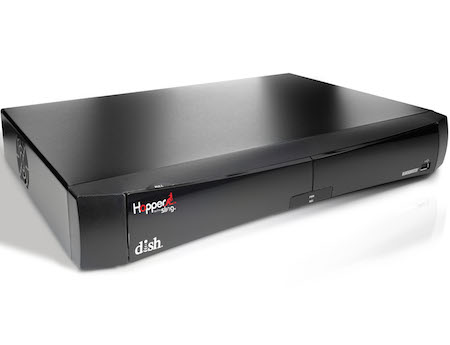Fox Pitches Ninth Circuit on Dish Injunction

The smarter way to stay on top of broadcasting and cable industry. Sign up below
You are now subscribed
Your newsletter sign-up was successful
Fox has been seeking a preliminary injunction and argues the district court was wrong, and in fact abused its discretion, in not finding Dish's allegedly infringing AutoHop DVR service culpable of irreparable harm, and denying the injunction, as did the Ninth Circuit on appeal last January.
At issue are PrimeTime Anytime and AutoHop, key features of the Hopper Whole-Home HD DVR. Fox, which sued for breach of contract and copyright infringement, appealed the denial of the injunction, and argument was held Monday (July 7) in the circuit's Pasadena courtroom.
Fox was looking to use broadcasters' recent victory in the Aereo case in the Supreme Court to buttress its argument, including pointing out that Dish had argued that it was merely an equipment provider, an Aereo argument that the Supremes rejected. It also pointed out the Supremes had refected Aereo's argument (which it said was Dish's as well) that a performance was not public under the Copyright Act if each sub watches a unique stream.
Fox's lawyer, Richard Stone, argued that Aereo was also essentially about attaching a Slingbox to a DVR. But that got some pushback.
One judge countered that it was "completely different technology" and said that while that was the argument, "the Supreme court has all sorts of caveats in the opinion about how this was about Aereo and nothing else and a lot of the 'nothing elses' seem to be pretty similar to Slingbox."
Fox said the court, by not granting the injunction, was compelling speech by requiring it provide content to Dish, in effect violating its First Amendment right NOT to speak, which is irreparable harm. Fox says the harm is that Dish is doing its web shifting and ad skipping without a license or authorization, and Fox is losing viewership because that "slung" viewing is not being measured. Fox says nobody is measuring the Hopper service, and certainly not the gold standard, Nielsen. Not being able to quantify that loss is itself irreparable
harm, as are opportunities for piracy of Fox programming.
Dish's lawyer, Josh RosenKranz, said it was "pretty clear" in the record that the "sling" technology introduced no new capabilities or was uniquely threatening. "There is no difference between the Sling box and the sling features at issue in this case." Dish said digital portability has been around for almost a decade, and Fox did not complain until now. Dish says that if Fox has not suffered any harms in the previous nine years that the technology was available, the court was well within its right not to grant an injunction based on irreparable harm.
The smarter way to stay on top of broadcasting and cable industry. Sign up below
Dish said Fox had tacitly approved the sling function.
The district court has yet to rule on Fox's underyling challenge to Dish, with petitions for summary judgment due next month.
Contributing editor John Eggerton has been an editor and/or writer on media regulation, legislation and policy for over four decades, including covering the FCC, FTC, Congress, the major media trade associations, and the federal courts. In addition to Multichannel News and Broadcasting + Cable, his work has appeared in Radio World, TV Technology, TV Fax, This Week in Consumer Electronics, Variety and the Encyclopedia Britannica.

